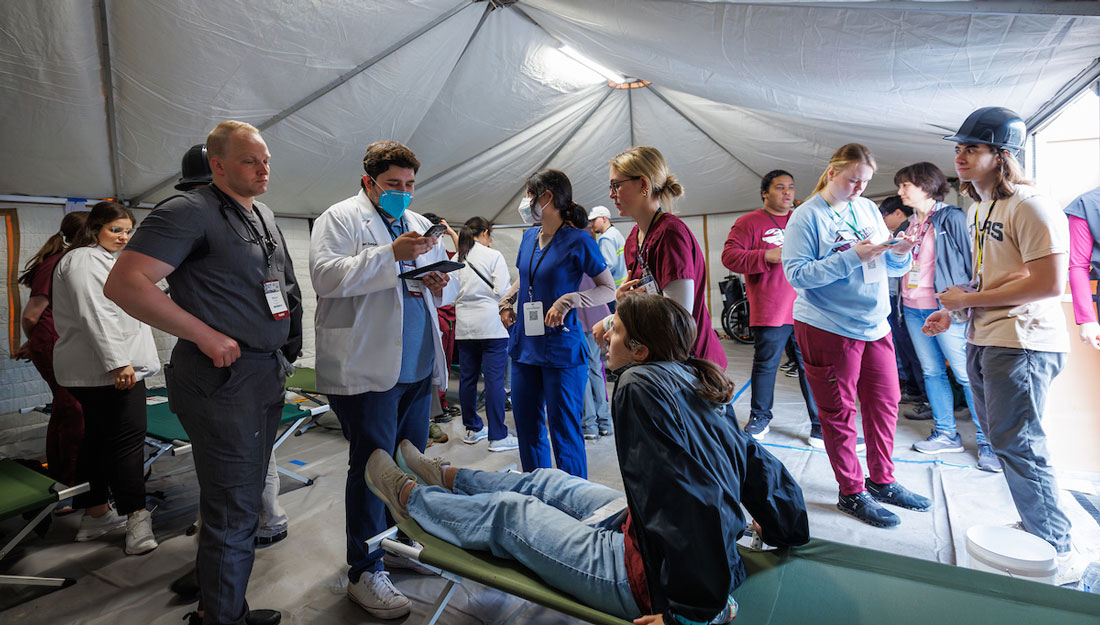Geriatrics is shaping the future of dental education
 Access to geriatric dental care is becoming an increasingly important issue, especially since many older Americans are keeping more of their natural teeth.
Access to geriatric dental care is becoming an increasingly important issue, especially since many older Americans are keeping more of their natural teeth.
Preliminary research findings from Dr. Helena Tapias, assistant professor in restorative sciences at Texas A&M University Baylor College of Dentistry, support this trend — though they weren’t necessarily what she expected.
“People are keeping more of their teeth compared to 20 or 30 years ago,” Tapias said. “Most people surveyed had 28 teeth,” something she attributes to improved oral health care and water fluoridation.
In summer 2012, Tapias launched the pilot clinical research study to gather data on elderly residents. The target locations: Dallas-area assisted living facilities, retirement homes and senior centers.
The Delta Dental-funded study, “Oral Health Assessment of Independent Older Adults in Dallas, Texas,” compared insurance statistics, patients’ self-perception of their oral health, number of missing teeth, decay and periodontal status. It also looked at any suspicious lesions and patients with upper and lower partials.
“Geriatric dentistry is the future of dental education,” Tapias said. “For every 10 patients dentists will treat in private practice, three to four will be elders.”
Because patients are faced with a myriad of health challenges, Tapias said, dentists must be trained to handle complex cases ranging from high blood pressure, diabetes and heart disease to cancer and Alzheimer’s. Often these patients take multiple medications, making management of their care difficult.
“We have to address oral health care for the elderly, but we cannot have a solution if we don’t know what the problems are,” she said.
To ensure dental students receive the best education and resources available for treating geriatric patients, Tapias began looking for data on the oral health status of seniors in Texas. There was none to be found. It’s a problem she suspects goes beyond the Lone Star State.
“We know the status of children and the general population, but there is no data for elders in Texas,” she said.
Tapias’ hopes this study will be the foundation for research on the oral health status of the elderly population across the country, which in turn will help provide better geriatric training for dental students.
“The patients benefit most from better quality of care,” Tapias said.
Media contact: media@tamu.edu


